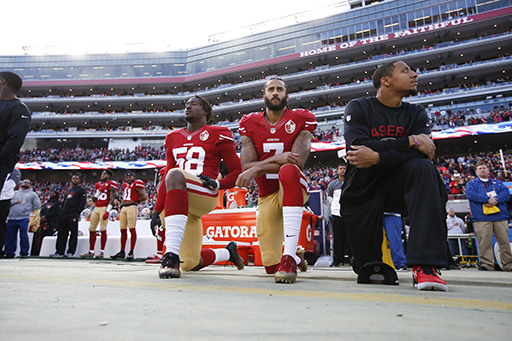Session 1: An introduction to sport, politics and political themes
Introduction
‘You have to stand proudly for the national anthem or you shouldn’t be playing, you shouldn’t be there, maybe you shouldn’t be in the country’ – Former US President, Donald Trump (Carpenter, 2018)

Despite the common cliché that sport and politics should not mix, sport has consistently demonstrated itself to be a breeding ground for political endeavours. The argument that sport and politics should remain independent of one another is perhaps most prevalent when it comes to athletes voicing political opinions (Butterworth, 2016). Politicians themselves project similar viewpoints across sport as emphasised by the quote from Donald Trump above when responding to the national anthem protests that have spread across the United States since 2016.
This first session is designed to give a broad introduction to sport and politics, before delving into football and the World Cup more specifically in subsequent sessions.
First, take a brief moment before you get started by putting the term politics into some context. Politics has been described as a series of activities through which it is decided, often by negotiation but frequently by force, who should get what, where and how (Bairner et al., 2016), and can be explained by the use of a lower case and capital letter:
- Small ‘p’ politics refers to any form of social organisation where matters are concerned with getting or using power within a particular group e.g., there is plenty of ‘office’ politics within, and often between, sports organisations.
- Big ‘P’ Politics often focuses on governmental decision making, world trade agreements and global affairs. The Politics in Europe does not often address sport.
Throughout this course you will see examples of both and within the next section you will be introduced to how sport often has political dimensions.
